Stretch breaks will help reduce muscle tension caused when muscles remain static or fixed in one position for too long. Muscles when remaining static will fatigue more easily, circulation will decrease, you will become uncomfortable and the task will become more difficult. Stretching can help relieve discomfort due to repetitive movements, awkward postures, and excessive force.
The following exercises are examples you can try. If you are already experiencing CTD (RSI) or have experienced other medical problems, seek advice from your doctor before beginning these stretches.
Remember to start out easy and stretch regularly. Hold the stretch 5 to 10 seconds.
EXERCISE SHOULD NOT CAUSE PAIN!
Additional material on stretching can be found in: Stretching at Your Computer Desk written by Bob Anderson. This book may be purchased from the University of Virginia Bookstore for about $10.
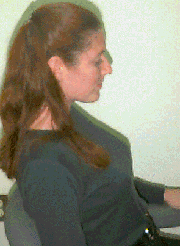
Tuck your chin.
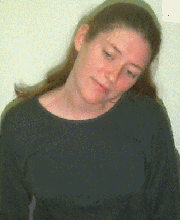
Tilt your head toward each shoulder.
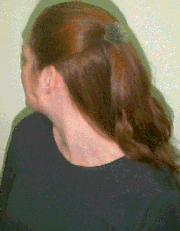
Turn your head from side to side, look over your shoulder.
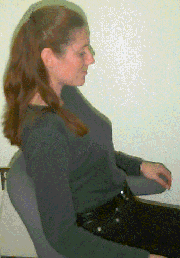
Keep your head aligned, DO NOT stick your neck out.
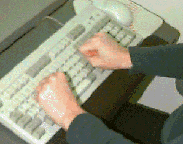
Make a fist, then span or spread your fingers as far as possible.
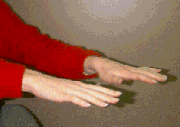
Hold arms straight out in front of body bend your hands up and down.
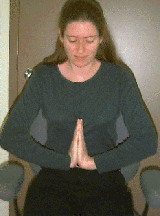
Place palms together with fingers pointing toward ceiling.
Keeping palms together, slowly lower hands until you feel a stretch.
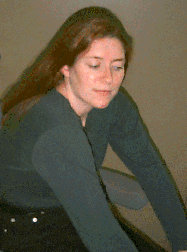
Shrug your shoulders, then relax them.
Roll your shoulders forward and backward.
Gently shake your shoulders.
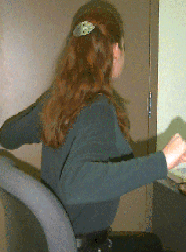
Pinch your shoulder blades together.
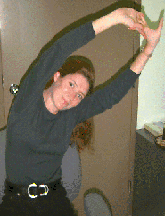
Reach over head and stretch, while stretching do side bends.
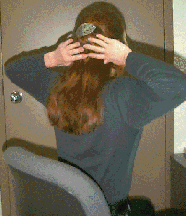
Sit up straight.
Place your hands behind your head.
Move your elbows backwards to pinch your shoulder blades together.
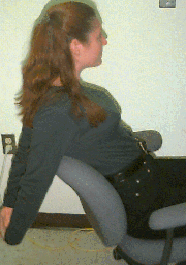
Stretch your arms behind your back.
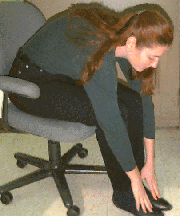
Bend forward in your chair and if able touch hands to floor.
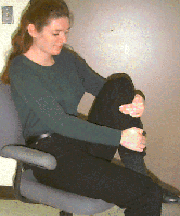
Grasp leg at shin, slowly pull leg up to your chest.
Repeat with other leg.
If you have knee pain, place hands behind thighs and slowly pull.
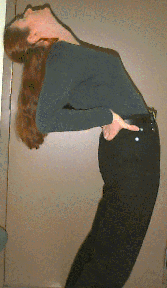
Place hands on hips, bend backward.
Do these as well:
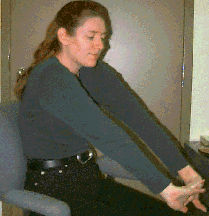
Interlace your fingers with palms facing away from you body,
straighten your arms and lift them toward the ceiling.